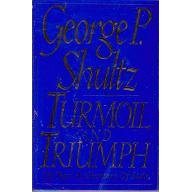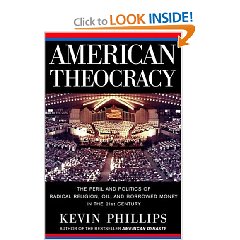I have little patience for one and two line reviews that praise (or condemn) a book without any substantive evidence that the book was actually read. My reviews are summative and evaluative, and this is a book that merits careful reading and carefully articulated reviews.
The author provides an absolutely top-notch discussion of how the extreme religious right was able to align with the corporate and media right to seize power and sideline the much larger middle class population. At one point the author notes that the wealthy can afford to be sanctimonious, they can afford to get their abortions in other countries. The book subtitle could be modified to say “from the Religious Right and the Immoral Politicians and Corporate Magnates that Bribed Them.”
The book is most valuable for providing a common sense indictment of the Democratic leadership, labeling them corrupt and ignorant for thinking that they can only win by being “Right Lite” and failing to distinguish the Loving Left from the Rich and Religious Right.
Especially helpful to me was the author's detailed discussion of how the Left went “secular” after the 1960's, that brief moment when a critical mass of America believed that “love not war” was in fact the right guiding principle. He points out how the elite intellectual left estranged itself from the labor left while also being secularly scornful of the religious left.
He praises Martin Luther King and the original civil rights movement that welcomed white support as embodying all that was good about spiritually-bonded social activism.
He goes on to note that in later years, as black activists excluded whites, feminists excluded men and alienated normal moms, and anti-war and environmental activists became angry and critical rather than loving and embracive, it all went down hill. The Left disintegrated as a socially and politically relevant force.
Among his strongest points is his assertion that the Left has “unilaterally disarmed” and given up its most powerful weapon, a spiritual vision of a world in which the Golden Rule prevails, and America stands for morality, generosity, and non-intrusive nurturing.
He lambastes the Left for being afraid of its softer feminine side, fearing to appear weak when that strong feminism or the generous side is precisely what is required to confront the radical “rational” right (rational in this case means de-humanizing, for people are treated as “trade goods” not as humans with spiritual and minimal mandatory quality of life needs). Indeed, the author cites Kant's statement that true rationality must be universalized, i.e. American “exceptionalism” is NOT rational, simply imposed.
Other books have talked about the need to add environmental and social bottom lines to the economic bottom line; this author integrates those ideas here.
His bottom line is that love and kindness and championing both a spiritual vision and the primacy of human rights and dignity are an intangible value that should not be restricted to church or family, but should characterize all aspects of the economy and the political decision process.
He demands–and I buy into this completely–that the Left, armed with faith (not nutty faith, but community-oriented faith) must refuse to accept the “collateral damage” that comes from predatory immoral capitalism or unilateral imperialist militarism.
He touches on the difference between science and scientism; the latter devoid of any sense of the humanities or faith (see my review of E. O. Wilson's Consilience for that great author's discussion of why the sciences need the humanities).
A few unique observations from the author before summarizing his public policy goals:
1) Bill Clinton got it, Hillary Clinton tried it as a spouse and abandoned it as a Senator (why she will not win as a Presidential or Vice Presidential candidate), and Al Gore, ubber secularist, never got it at all. Left unsaid, but clear to me, is that Senator John Edwards does get it, and his current focus on poverty is perfectly matched to this book's vision for a caring new left that is embrasive of the bottom and the center.
2) Marx had more spiritual wisdom in his early writings than most people realize, and was originally founded in a moral revulsion against the costs of capitalism on the commoditization of humans (see my review of Lionel Tiger, Manufacture of Evil: Ethics, Evolution, and the Industrial System). Where Marx went wrong, and where the post World War II Left went wrong, was in secularizing itself and failing to use religious faith as a catalyst and sustaining element for activism.
The author ends with some very specific prescriptions that I consider to be sensible, implantable, affordable, essential, and-and-contrary to those reviewers who demean the author-to be a absolutely vital to those seeking to restore balance and sanity to this country in the 2006 and 2008 elections. Any candidate who fails to integrate this book and its vision into their campaign is going to be fighting blind in one eye, with at least one arm tied behind their back. The varied covenants, the separation of church, state, and science (see my review of the The Republican War on Science), the Global Marshall Plan, the Nonviolent Peace Force, these are all ideas that are validated by just about every one of the 600+ books on national security that I have reviewed for Amazon these past six years.
The author ends on a reflective note, stating that no candidate, no elected President, can achieve the needed change on their own. There must be a considerable body of public opinion that stands up and demands the change, that holds the Wall Street and Enrons and Exxons of the world accountable, that holds Congress accountable for bribery and holds Dick Cheney accountable for lying and for no-bid multi-billion awards to Halliburton.
See Conspiracy of Fools: A True Story and Vice: Dick Cheney and the Hijacking of the American Presidency
While there are other books that are meaning to me with respect to the future of this country, this is the one single book that I do not believe can be ignored by any candidate hoping to restore democracy and morality to America.
On the failure of fundamentalist religion, see
American Fascists: The Christian Right and the War On America
American Theocracy: The Peril and Politics of Radical Religion, Oil, and Borrowed Money in the 21stCentury









